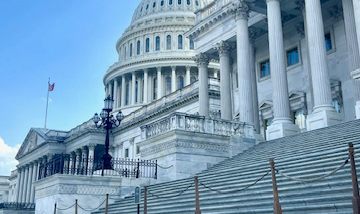Disclaimer: The following is for informational purposes only. It is not intended to constitute legal advice, or to recommend a course of action, and does not create an attorney-client relationship between the reader and Renuka Somers, or Somers Tax Law, PLLC.
A “non-resident alien” (NRA) (i.e. a person who does not live in the U.S. and who is not a U.S. citizen, or “green card holder”) may have an estate that is exposed to U.S. federal estate tax, depending on the type and locality of assets held by them, and what those assets are worth.
Assets that subject an NRA to U.S. estate tax include U.S. situs real property and tangible personal property (i.e. property physically located in the U.S.), stock in U.S. corporations, and certain bank/deposit accounts.
The 2024 federal estate tax exemption for U.S. persons is $13.61 million USD per individual, or $27.22 million USD for a married couple (where both spouses are U.S. citizens and where the “marital deduction” has been elected on the death of the first spouse). In contrast, the federal estate tax exemption for an NRA is $60,000 USD. An NRA’s estate valued above that exemption threshold is subject to the Federal gift and estate tax rate of 40%. An executor of such an estate must file a federal estate tax return.
The U.S. has estate tax treaties with certain countries which provide more concessional tax treatment to NRAs by limiting the types of asset considered situated in the U.S. and subject to U.S. estate taxation. Under the US–Australia Estate Duty Convention, the U.S. applies the federal estate tax threshold to an Australian NRA, to their U.S. situs assets as a proportion of their worldwide assets.
NRAs with U.S. assets should address the distribution of their U.S. assets in their estate plans, either through a Will in their country of domicile, or through a U.S. Will. Specific considerations apply in each case.





